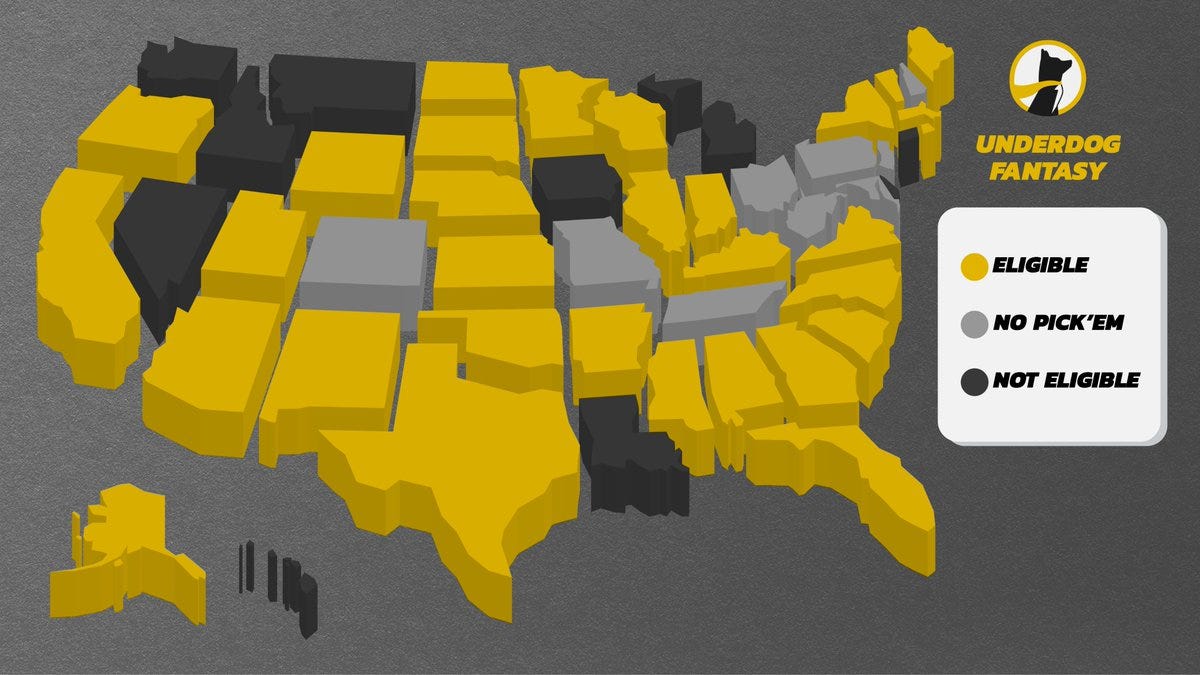The Myth That Online Gambling Is Effectively Banned Anywhere In The US
Every year, myriad efforts exist to expand gambling in state legislatures across the United States. In recent years those efforts have included forms of online gambling, with online sports betting getting far more adoption and legalization than casino, lottery and poker.
Of course, there’s zero good reason why online sports betting is somehow different than other forms of online gambling from the perspective of “should we legalize it?” But the sports betting lobbying efforts have been widespread and effective, which accounts for most of that.
When there’s hand-wringing about the legalization of online casino (and poker), it amuses me that this is the line in the sand that states want to draw. You can gamble in infinite ways, both in person and online in most states, but regulated online casino (or really, anything that’s not sports betting) is often a bridge too far, apparently.
Of course, there are offshore online sportsbooks, casinos and poker rooms that serve most of the US without batting an eyelash. But this isn’t even going to be a rant about that. This is just a look at the other stuff that is easily available in the United States. It’s mostly that all this hand-wringing over legalizing another form of gambling is mostly performative or uninformed. Offshore options are just one example of that.
I am going to make a blanket pronouncement now: I am not claiming that any of the things I am going to mention are operating illegally. I do believe all of these things are gambling, whether laws (or legal arguments) define them as such or not.
So here’s a non-exhaustive list of places you can gamble online across the US that don’t fall under the “offshore” designation.
Fantasy sports sites and sweepstakes social sportsbooks
It was kind of hard to write that header with a straight face because these things are both sportsbooks.
If you were an early reader of The Closing Line or follow me on Twitter, you already know my stance on the daily fantasy sites offering player props/parlays. So read that linked piece if you want to know more.
Here I am just going to point out how pervasive it is. Here is the footprint of some of the biggest sites:
PrizePicks:

Underdog Fantasy:

Sleeper:
I couldn’t find a map, so here is the list from Sleeper:
Then there’s another option, called Fliff, which is based on sweepstakes laws across the US (which I would argue is actually on the best legal footing, even though I am not a lawyer). However, it’s still an online sportsbook using sweepstakes laws as its legal justification.
You can “redeem prizes” in 41 states, according to Fliff.
Suffice it to say there are no laws specifically addressing the types of contests the fantasy/sweepstakes sites/apps offer in every single one of these states.
Anyway, the point is that a form of online sports betting is going on in a lot of states, whether or not the state specifically legalized or regulated it.
Sweepstakes casinos
Like Fliff, there are online casinos that function as sweepstakes products. These are a big business right now — the biggest brand in the space is Chumba. Again, they operate much like any sweepstakes product (think the Monopoly game at McDonald’s, just with an online casino as the game behind the sweepstakes mechanic). And it’s in almost all of the country (from Chumba’s T&C’s):
Chumba is far from the only product of this type in the US market. If you are wringing your hands about online casino in your state, I have news for you: It’s almost certainly already there. (And I want to make this abundantly clear, mostly to cover my own ass, I am not alleging that it’s operating illegally.) In a best case, is a legally operating online casino that offers a way to win prizes and cash, whether a state has regulated it or not.
Online lotteries
Being able to play the lottery online is becoming more popular, as well. There’s Jackpocket, which allows users to buy tickets for drawings in 16 states; there are also other companies in this space.
We also have a variety of state lotteries allowing for online play directly via their sites. And while a lot of the offerings are technically online lottery games/scratch-offs from a legal perspective, good luck differentiating these from online slot machines. Here’s Virginia’s online lottery, for instance (demos on the link):
When you add it all up…
Offshore, daily fantasy, sweepstakes, lotteries: Online gambling is already pervasive in the United States whether a state has regulated online sports betting or not. You’re not stopping online gambling from happening, and sometimes your state lottery or daily fantasy laws are helping it to happen.
Will states and legacy casino companies adapt to that or let the status quo persist? The smart money is probably on the latter, but it doesn’t have to be that way.








